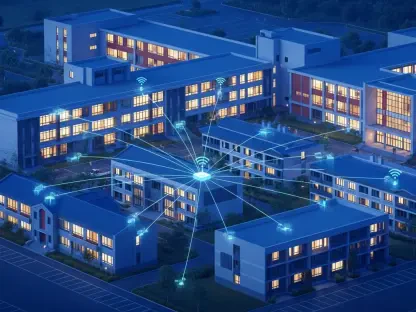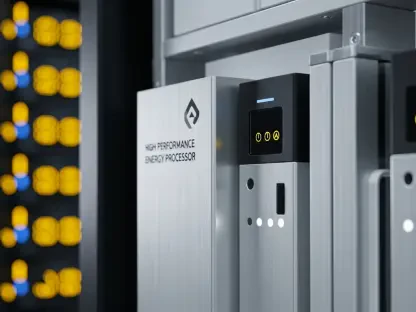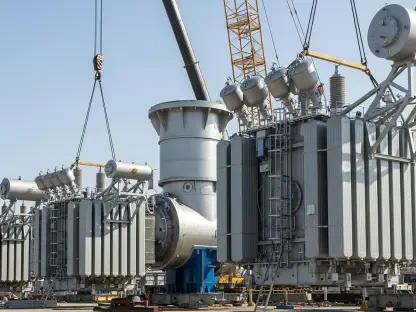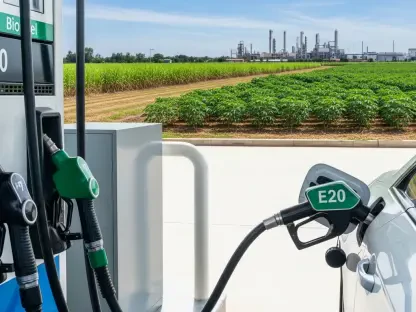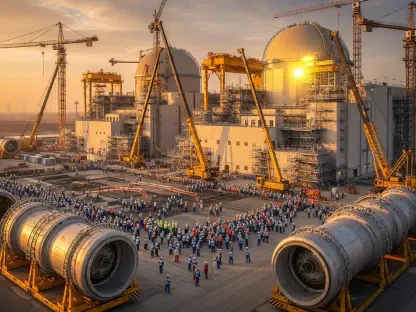The United Nations Industrial Development Organization (UNIDO) has embarked on a significant journey with Egypt by initiating 23 projects worth $58 million aimed at enhancing energy efficiency, promoting green initiatives, and driving developmental projects. These initiatives span various critical sectors and are backed by funding from prestigious entities such as the European Union as well as the governments of Japan, Switzerland, and Italy. During a recent meeting, Egypt’s Deputy Prime Minister for Industrial Development and Minister of Industry and Transport, Kamel Al-Wazir, emphasized the country’s commitment to renewable energy and reinforced the cooperation between UNIDO and the ministry’s technology centers to support local manufacturing of solar and wind energy components.
Priority Areas and Foreign Investment
Commitment to Wastewater and Desalination
One of the key priority areas in the collaboration between Egypt and UNIDO is the advancement of wastewater treatment and seawater desalination technologies. The Egyptian government is not only focusing on meeting domestic needs but also aims to position itself as a regional leader by attracting foreign investments in these sectors. This strategy is designed to boost exports and create new job opportunities, effectively supporting sustainable economic growth. The production of desalination and water pumping motors is a crucial component of this vision, helping to address water scarcity challenges and ensure a reliable supply of clean water for both residential and industrial purposes.
Egypt’s proactive approach in seeking international partnerships and investments underscores its determination to fulfill local demand while establishing a foothold in the global market. By collaborating with organizations like UNIDO, Egypt is not only benefiting from technical and financial assistance but is also aligning itself with global standards and best practices in sustainable development. This holistic strategy ensures that Egypt can leverage its resources and expertise to create a more sustainable future for its citizens and the wider region.
Collaboration with Numerous Ministries and Agencies
In addition to working closely with the Ministry of Industry, UNIDO collaborates with various other ministries and agencies within Egypt to ensure the comprehensive implementation of its projects. These include the ministries of International Cooperation, Environment, and the Micro, Small, and Medium Enterprise Development Agency. Such cross-ministerial collaboration enables the projects to address a wider range of developmental challenges and ensures that the initiatives are well-integrated into the national development framework.
UNIDO’s Regional Representative in Egypt, Patrick Gilabert, highlighted the significance of Egypt to the organization by noting that the country hosts the third-largest UNIDO office globally. This emphasis on Egypt demonstrates the organization’s commitment to supporting the nation’s development goals. By bringing together multiple stakeholders, UNIDO ensures that its projects have a wider impact, fostering an environment where sustainable practices can thrive across various sectors and levels of society.
Targeted Projects and Sectoral Impact
Enhancing Energy Efficiency in Key Industries
Key projects reviewed during the meeting include a focused effort on energy efficiency improvements across key industrial sectors, such as fertilizers, iron, and steel. These improvements are being achieved through comprehensive awareness campaigns as well as capacity-building initiatives conducted in collaboration with national centers. Such efforts not only contribute to reducing energy consumption but also play a crucial role in minimizing environmental impacts and enhancing overall industrial productivity.
The Green City project, undertaken in partnership with the Ministry of Environment, is another notable initiative aimed at reducing energy consumption while protecting marine environments in tourist cities. By targeting areas that are significant both economically and environmentally, the project seeks to create a harmonious balance between development and conservation. This holistic approach ensures that the benefits of economic development do not come at the expense of environmental health, thereby promoting sustainable growth.
Supporting Small and Medium-Sized Enterprises (SMEs)
The Inclusive Green Growth project represents a strategic effort to support small and medium-sized enterprises (SMEs) in Upper Egypt. This project has successfully aided 140 initiatives, focusing on sectors such as food industries, solar panel installation, and organic fertilizers. By providing these enterprises with the necessary support and resources, UNIDO is enabling them to not only thrive but also contribute to the broader goal of sustainable development.
In addition to offering direct support, the Inclusive Green Growth project has facilitated the creation of nine mandatory standards for organic fertilizers, aligning them with international norms. These standards ensure that the products meet global quality requirements, thereby enhancing their competitiveness in international markets. By empowering SMEs and fostering an environment of innovation and compliance with global standards, the project helps lay the foundation for sustainable economic growth in the region.
Comprehensive Development Initiatives
Sustainable Industrial Zones and Trade Enhancement
Furthering its efforts in promoting sustainable development, UNIDO has initiated the Sustainable Industrial Zones initiative, which aids several industrial zones in adopting sustainability standards. These standards encompass a range of practices aimed at reducing environmental impact and promoting efficient resource use. By encouraging industries to embrace these practices, the initiative aims to create a more sustainable industrial ecosystem that is resilient and adaptable to future challenges.
Additionally, the Trade project focuses on enhancing industrial competitiveness and improving market accessibility for Egyptian businesses. By providing businesses with the tools and knowledge necessary to navigate both domestic and international markets, the project seeks to boost their competitive edge. This, in turn, contributes to the overall economic development of the country by opening up new opportunities for growth and expansion.
Aligning with International Standards
The United Nations Industrial Development Organization (UNIDO) has launched an ambitious venture in collaboration with Egypt, initiating 23 projects worth $58 million. These projects are designed to enhance energy efficiency, promote green initiatives, and advance developmental efforts across various essential sectors. The funding support comes from esteemed entities such as the European Union and the governments of Japan, Switzerland, and Italy. In a recent meeting, Egypt’s Deputy Prime Minister for Industrial Development and Minister of Industry and Transport, Kamel Al-Wazir, highlighted the nation’s dedication to renewable energy. He also stressed the cooperative efforts between UNIDO and the ministry’s technology centers to boost local production of solar and wind energy components. This collaboration underscores Egypt’s commitment to sustainable development and the global shift toward cleaner energy sources. The initiatives not only aim to uplift Egypt’s industrial sector but also to align with international standards for environmental sustainability.


